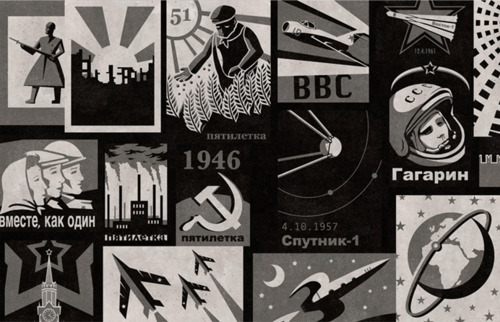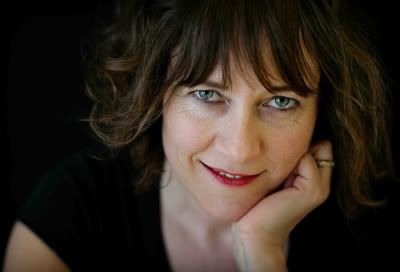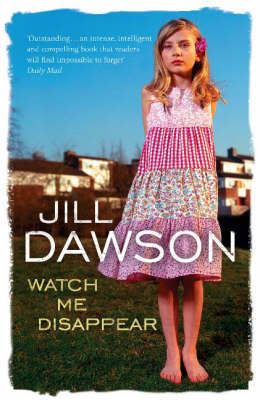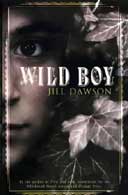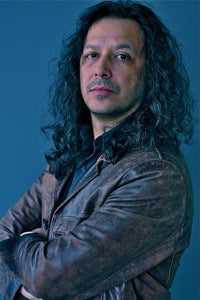
Regular readers of this blog will know that I have often championed the work of John Burnside. His last novel Glister was one of my favourite books of last year and his memoir A Lie About My Father remains one of the best memoirs I've read. Like many of my favourite writers he excels in several areas including poetry and journalism. All of which means that I was as pleased as punch when he found time amongst his full-time teaching at St Andrew's and the rigours of being a father to two boys (something I will share with him come October) to answer a few questions for me. If you haven't read any of his work already then I sincerely hope you will do after reading this.
You worked as a computer programmer at the same time as writing your first poems. Did any of your colleagues have a clue that there was a poet amongst them?
Not to begin with. I soon got caught out, though – and much leg-pulling ensued, though mostly about my author photo. When I finally came to leave the job and walked into the Technical Director’s office and handed him my company car key, announcing that I was quitting, he smiled and asked if I was off to write a novel. I think the general feeling was that I was having one of those midlife crisis deals and would be back, somewhat chastened, in six months. I think I did too, to begin with.
That said, many of my colleagues were interested and supportive of my writing. I think they thought I was crazy to think of it as anything other than a hobby – though I did receive some kind messages after The Dumb House came out.
I read The Dumb House shortly after seeing a production of Marivaux's The Dispute in which four children, two of each sex are raised in isolation and then placed together to see which sex will be unfaithful first. It is a comedy whereas your novel, which shares the premise of children raised in isolation, is about as far from comedy as I can imagine. Can you say a bit about where that novel came from?
The original ‘hero’ of The Dumb house was language. I was interested in language and I wanted to dwell for a while on some stories about language acquisition and the relationship between language and the soul. I especially liked that story about Akbar’s keeping children in a silent palace, outside the city, to see whether they would speak if they didn’t hear language used. That would have been a horrifying thing to those of his court who believed that language and the soul are closely related – to think that they – the court – had doomed so many to a soulless existence, which would have been confirmed by the silence of the children in the ‘dumb house’.
Of course, that wasn’t enough of a starting point for a first novel – not enough narrative. That was when Luke arrived – one day, he just appeared, and became the central character (though not, of course, the ‘hero’). In many ways, he was a version of me, though he was a negative image, as it were, of my concerns and interests.
As a writer of poetry, memoir, fiction, and journalism, what are main differences for you personally between those disciplines, and when you have an idea do you know immediately what it will become?
I do know, now, what an idea wants to be (as it were) though there have been times, in the past, when I didn’t. A poem always knows it’s going to be a poem, of course, but there have been occasions when I thought a nascent short story was on the way to novel-hood – maybe because the short story is a very difficult form, (and much undervalued in commercial terms, too). It takes a while to get a strong sense of that.
There are also grey areas that are interesting – between memoir and fiction, essay and memoir, travel piece and memoir, etc. Maybe that’s why I like the memoir as a genre (if you can call it that). It’s very flexible – you can close in and become intimate, then open out and talk about ideas.
Do you have a preferred medium?
They all have their attractions, (I suppose that is to state the obvious, since I keep going back to them all). I’ve just finished a second memoir – it’s called Waking Up in Toytown, and it’s due early next year. It differs from its predecessor (A Lie about my Father) to a fair extent – but the next one, which is already suggesting itself to me, will be different again – using the essay form as a way in, to reflect on time and memory. For me, everything is about time. How we see time determines everything: how happy we are, how directed, how we think of such things as ‘success’ and failure’, how decent we manage to be as people. It all depends on an understanding of time.
I guess, to begin with, I would have said poetry was my first love – because I mostly wrote poetry then. I still do write poetry, but I have an equal fondness for the short story and the essay. I love the essay. It offers so many possibilities to a writer. As for the novel – well that’s love, too, but it’s more like unrequited love. You give it your all and then you can’t bear to think how badly you failed that gorgeous initial idea. Because it was as perfect as jewel to begin with but – not surprisingly, given that it is worked on over years during short breaks from the everyday demands of work and domestic life – it ends up being a piece of knitting, with plains where there should be purls, and vice versa. I carry around a lingering fondness for a couple of my books – the Dumb House, The Devil’s Footprints, Glister, say - but now they make me think of children who looked so wonderful and clean in their christening shawls, but quickly turned delinquent.
Going back to what you were saying about time and how we view it, what do you mean about the differing ways of seeing time?
The time question presents itself in two ways. First, a commonplace piece of mystic thinking – put briefly, the idea that the now is eternal. Which is the case, but hardly new – as a thought. As an experience, however, it is astonishing. This moment is everything – though if you try to stop and think about what ‘this moment’ I, it’s gone, and another, equally fleeting moment is there, or there and gone, in its place. So the only way to live in this eternal now is to forget about it, and let it roll, so to speak.
The other way the time question presents itself is when we thinking of it on the larger scale. Time passes, or we pass in it – and pass on too, as the cliché goes. The now is eternal, but we, as we are in it, are not. We pass away. The odd thing is that, when experiments were done on how to help people become happier, one of the steps was to spend a little time each day in a cemetery – and it did help people, the awareness of death made them feel more aware of, and so value, the present. It drew them back into the now.
On a larger scale, there is the matter of dialectic (one name for a universal idea), viz the idea that the wheel turns, yin and yang seek balance, etc. Thesis, antithesis, synthesis, new thesis, forever and ever amen. Seeing that this is a universal principle – that things are always in flux – helps us to overcome our local attachments – by which I don’t mean that we lose interest in, or passion for, anything, but we do see that things pass, and this moment’s pleasure or pain is clarified by the knowledge that it will pass.
There’s a tradition in Spanish poetry that I like – where the poet is in his garden, looking around, listening to the birds, enjoying the warmth and the scents, when it comes to him that one day this garden will still be there, but he will be gone, and someone else will be experiencing these things. Someone he doesn’t even know. This is a cause for celebration, though, not elegy or regret. The game continues. James P. Carse talks about this as ‘infinite play’ – there are times when we cease to play the game of being for finite ends, and play for the sake of the game itself, a game that will go on without us.
I know, I know. New age-y mysticism and such have made all these ideas into clichés. I was a sub-hippie myself once. But as experiences, these things remain true, and cannot be diminished. Except, perhaps, in rambling on about them – which I’ve just done!
Can you give an idea of your writing process? Do you start by planning a story out or begin with a character and see where they go?
It varies, depending on what I am doing. The essential thing is to have an origin, a core if you like, of the non-directed, spontaneous, organic. It’s important to wait the right length of time before pen is applied to paper – this can be a matter of hours, or years. For the novel I am working on now, it has been almost a decade – I started in 2000, but had to stop and wait because something was missing. I didn’t know what, so I had to wait.
In a few of your novels the main character seems to be a man living in ‘self-imposed exile’. Why do you think this type of character keeps recurring?
I suppose, if I’m honest, I have to admit that this character is a variant of me. I don’t mean that any of my characters resemble me at all (though one person did say I was John the Librarian from Glister…) but I do stand at an angle to the world. I just start from a different premise than the society I find myself in – though I don’t think I’m unique in that. On the contrary, we all know – ‘in ourselves’ as they say (which is an interesting phrase) – that public events, i.e. everything from what politicians talk about to who gets the prizes at the Oscars and the Brit Awards is a giant lie. We all know that politicians are put in place by commercial concerns and have to pay the piper in all kinds of ways (from GM crops to buying vast quantities of antiviral drugs that probably won’t even work when needed to building warships nobody will ever need) just as we know that there are all kinds of musicians, writers, film-makers, artists, etc who are doing imaginative, interesting and moving work that, for whatever reason, has to stay outside the mainstream.
Why do you think society has become so divorced from the reality of most people’s inner lives?
Oh, God, don’t invite me to take out the soap box. Seriously, though, the problem has been well analysed and we pretty much know what has gone wrong – we lost organic connection with the world around us, everything was commoditised, our politicians and business folk became hopelessly self-serving (as they have often done, through history, but recently it’s been so blatant it saps the spirit just to watch them get away with it), we have a neo-medieval culture of celebrity, excellence became embarrassing, we began to think in soundbites, we published more and more books about ‘complexity’ but schooled ourselves to think in simpler and simpler terms. I could go on. The central thing, maybe, is that we were the first society to know – actually to see and hear – the misery that was being endured in faraway places, by people our appetites had impoverished, while we enjoyed our bland and joyless feasts at home. What a burden of guilt that is – and along with that guilt comes a feeling of helplessness, a sense that there is nothing we can do about it.
In the industrial landscapes of Living Nowhere and Glister there doesn’t seem to be much hope or optimism, does that reflect something that you feel personally about industry and urban living?
Yes and no. I think cities could be wonderful places, if the planners, commercial interests and politicos put people first. And the only real problem I saw when I worked in factories and (briefly) British Steel was a lack of respect for the men and women who did the work. Most of the people I encountered took pride in doing what they did, or if not, wanted to do so. The problem was that this pride was eroded by daily insults of the most basic kind – a lack of participation, a sense that someone else made all the decisions, even the most basic ones.
I thought of both Living Nowhere and Glister with the recent 'toxic soup' liability case in Corby. How did you react to that victory?
I think it's great that the families won - though of course it's the Council who pick up the liability and not the companies who created the problem in the first place. So I can't help thinking that it's a bit like robbing Peter to pay Paul, while the guys in the good suits just walk away. The Council are culpable - but the list doesn't end there as anyone who knows Corby (and many other industrial towns) can testify. (As it happens, the initial 'inspiration' - in part, at least - for the toxic landscape in Glister was Weston, near Runcorn, and the land in that area poisoned by ICI).
You asked for A Lie About My Father to be treated as a work of fiction, is there something essentially unreliable about personal history?
There is, inevitably. I tried to be as accurate, in purely actual terms, as I could in that book. But I was – am – partisan. Did I do my father justice? Did I do myself justice? I hope so. But I was telling a story, and the governing factor in making that book was the wish to tell that story – which is not documentary, but narrative. Every story is as much about what is not told as what is told – say I leave something out because I don’t think it is essential to the story but somebody else reads the book and thinks that what I left out was the most important detail of all?
The other thing I would say here may sound merely contentious, but I feel it is a valid point and that is that fiction is more ‘true’ than fact. You can take ten thousand photographs of a bamboo plant, say, from every possible angle and it still will not capture the essence of bamboo as a drawing by Hokusai does. I think that is what fiction is after, that essence. Not fact. Truth.
After reading A Lie About My Father I felt that I could see some of the crossover from fact into your fiction (the stunning description of an LSD trip for example). Do you find it easier when writing from personal experience?
I’m not sure. I have to reimagine everything that is drawn from personal experience anyhow, because it has to be the experience of this character, rather than my own. I did acid on a very regular basis for a number of years, but the trip that opens Living Nowhere, though it is informed by my memories, is not my trip. It’s Alina’s (I hope).
The writer Paul Abbot has said that a good character is often a composite of three people you know, would you agree with that?
It’s an interesting notion. I wonder if Melville would have said as much about Ahab? I used to think that there’s a little piece of the author’s father in the villain of any story – now that I’m a father myself, though, I’m not so sure.
Speaking of that, would you say that fatherhood has altered anything in your writing? When I compare the objectivity of the children in The Dumb House with the concern for them in Glister I wonder if there is an element of care coming through subconsciously. I know that I see the world differently since becoming a father.
Fatherhood has altered my entire life – in many more ways than I expected. I don’t think, though, it changed my writing in a moral sense. The Dumb House was an angry book – a very angry book – to begin with. The coolness was necessary to keep that anger from undermining the argument. Cruelty appalled me, then, when I wrote that book, as much as it does now – but I had to write from Luke’s point of view in that book because I didn’t want to be shouting from the rooftops, I wanted to insinuate. How different, say, is much of the animal experimentation that goes on, from the crude ‘science’ that Luke engages in with the twins? That was a question for me, but I didn’t want to ask it in those words – as I say, it had to be insinuation.
There is often a moment of catharsis in your fiction. Do you find the process of writing cathartic in itself?
I’m not altogether sure about catharsis. The etymology bothers me. Purification, cleansing, etc. I’d prefer to think in terms of revelation. I like to work with alienated male characters who have become denatured for some reason. Hopefully, something happens which reveals to them that they have been wrapped in a lie, or self-deceit, or social conditioning – that they have been blinded to their true natures. Writing is also a process of this kind of revelation. I renew my sense of the world as I write. Maybe that is a cleansing. If it is, though, it’s not a one-off thing – it’s an iterative process. Catharsis can sound a bit final.
What are you working on at the moment?
I’ve returned to that novel I mentioned earlier, begun in 2000. It’s called A Summer of Drowning, it’s set in the Arctic circle in an island in north Norway. It’s about belief, superstition and storytelling. That’s all I dare say right at the moment.
Could you recommend an under-appreciated book to readers of this blog?
Hundreds, I fear. How about Lancelot by Walker Percy, for starters? Or Flannery O’Connor’s wonderful novel, Wise Blood
by Walker Percy, for starters? Or Flannery O’Connor’s wonderful novel, Wise Blood , (she’s not just a story writer…)?
, (she’s not just a story writer…)?
One thing that bothers me is how little we translate in this country. We’re missing some great French novelists, for example: Jean Echenoz , Regis Jauffret
, Regis Jauffret and Stéphane Audeguy
and Stéphane Audeguy to pick just three favourites of mine. We need good translations of these and so many others.
to pick just three favourites of mine. We need good translations of these and so many others.
I always ask my interviewees if they would do a Hemingway and compose a story in six words. Would you give it a go too?
Afterwards, we had coffee and pie.
John Burnside's latest poetry collection, The Hunt in the Forest , is published today
, is published today
His other works can be found here .
.
Read more...





